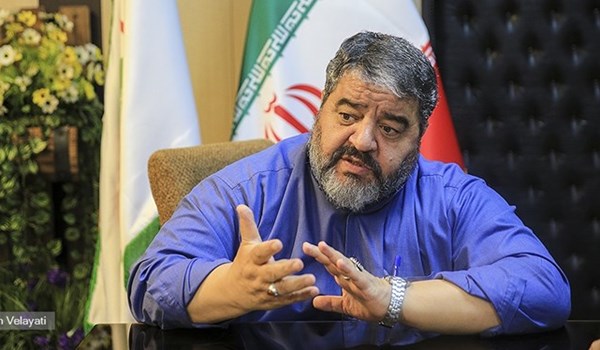
TEHRAN (FNA)- Head of Iran's Civil Defense Organization Brigadier General Gholamreza Jalali described the chemical attacks by former Iraqi dictator Saddam Hussein's regime in the cities of Sardasht in Western Iran and Halabja as a chemical holocaust, saying that the European countries that helped Saddam to produce these weapons should be held accountable today.
"Prohibition of the production and stockpiling chemical of weapons in the world must have executive requirements," Brigadier General Jalali said on Sunday, addressing the National Conference on Chemical Defense held in Tehran.
"Today we still witness the use of chemical weapons against the people. For example, ISIS used chemical weapons against the Iraqi people, and everyone knows what countries created the terrorist group," he added.
He went on to say that the conventions prohibiting the production and accumulation of chemical weapons are not being implemented, and the United States and European countries are producing and stockpiling them, so an organization like the International Atomic Energy Agency must be set up in the chemical field to prevent this.
The official also criticized the performance of international institutions such as the fact-finding committees for chemical attacks because they do not disclose the behind-the-scenes production and sale of chemical weapons.
The National Conference on Chemical Defense was held in Tehran on Sunday on the occasion of the 33rd anniversary of the chemical attack on Sardasht with the attendance of senior military officials of Iran, including the senior aide and adviser to Supreme Leader of the Islamic Revolution Major General Yahya Rahim-Safavi.
Tens of thousands of Iranians were killed and wounded by chemical weapons during the 1980-1988 Iraqi imposed war on Iran. Around 100,000 Iranians are still living with the effects, which include long-term respiratory problems, eye and skin problems as well as immune system disorders, psychological disorders, genetic disorders, and probably cancers.
Sardasht is a city in Northwestern Iran. According to the 2006 census, its population was 37,000. It lies in the West Azarbaijan province. It was the first city in which civilians were attacked with chemical weapons by former Iraqi dictator, Saddam Hussein during the imposed Iraqi war on Iran.
The population of Sardasht is Kurdish. Sardasht is also known for the many villages around it and their reliability on the city's market.
On June 28, 1987, Iraqi aircraft dropped what Iranian authorities believed to be mustard gas bombs on Sardasht, in two separate bombing runs on four residential areas.
Sardasht was the first town in the world to be gassed. Out of a population of 20,000, 25% are still suffering severe illnesses from the attacks.

No comments:
Post a Comment